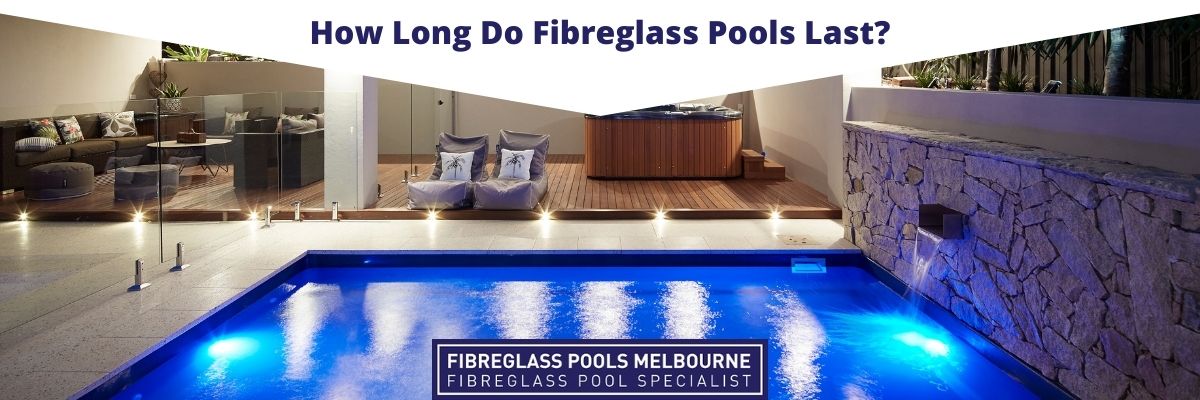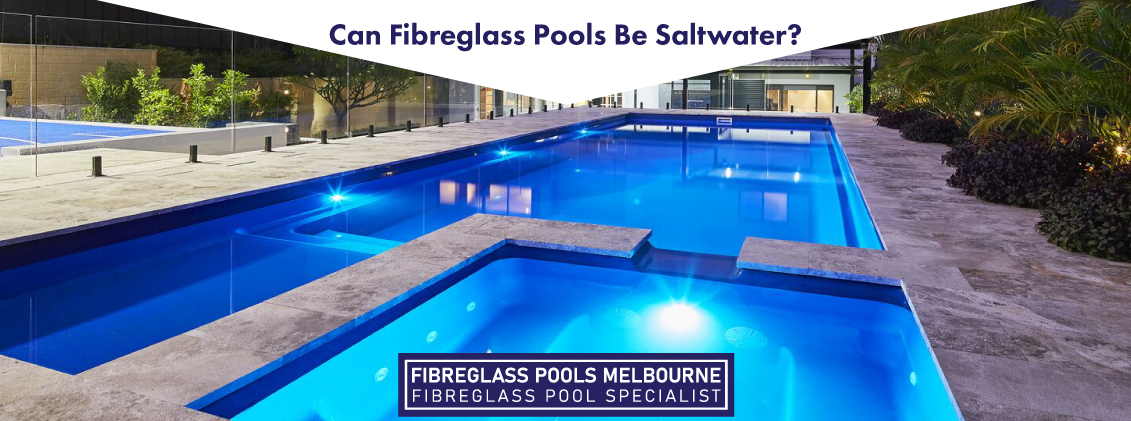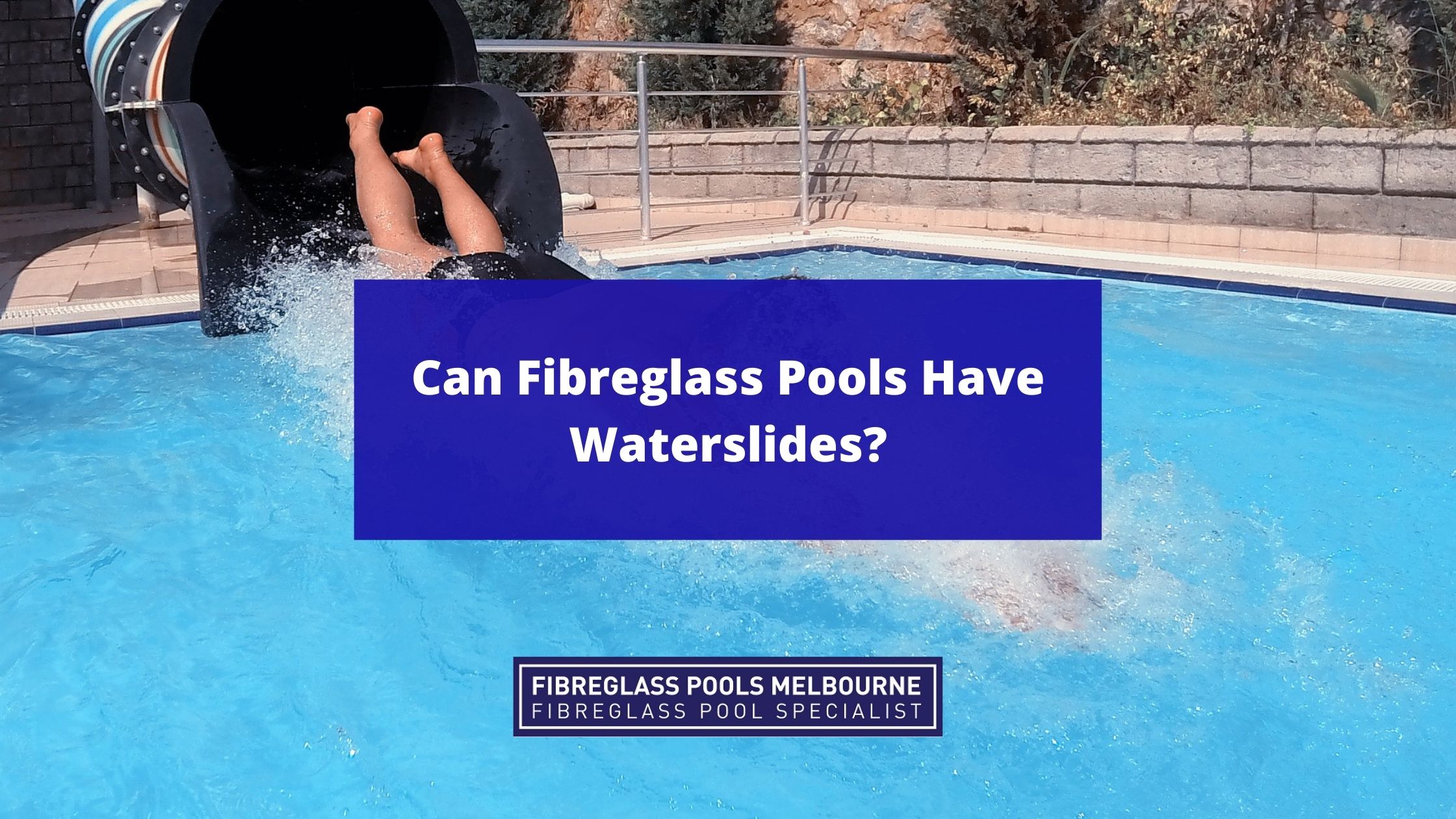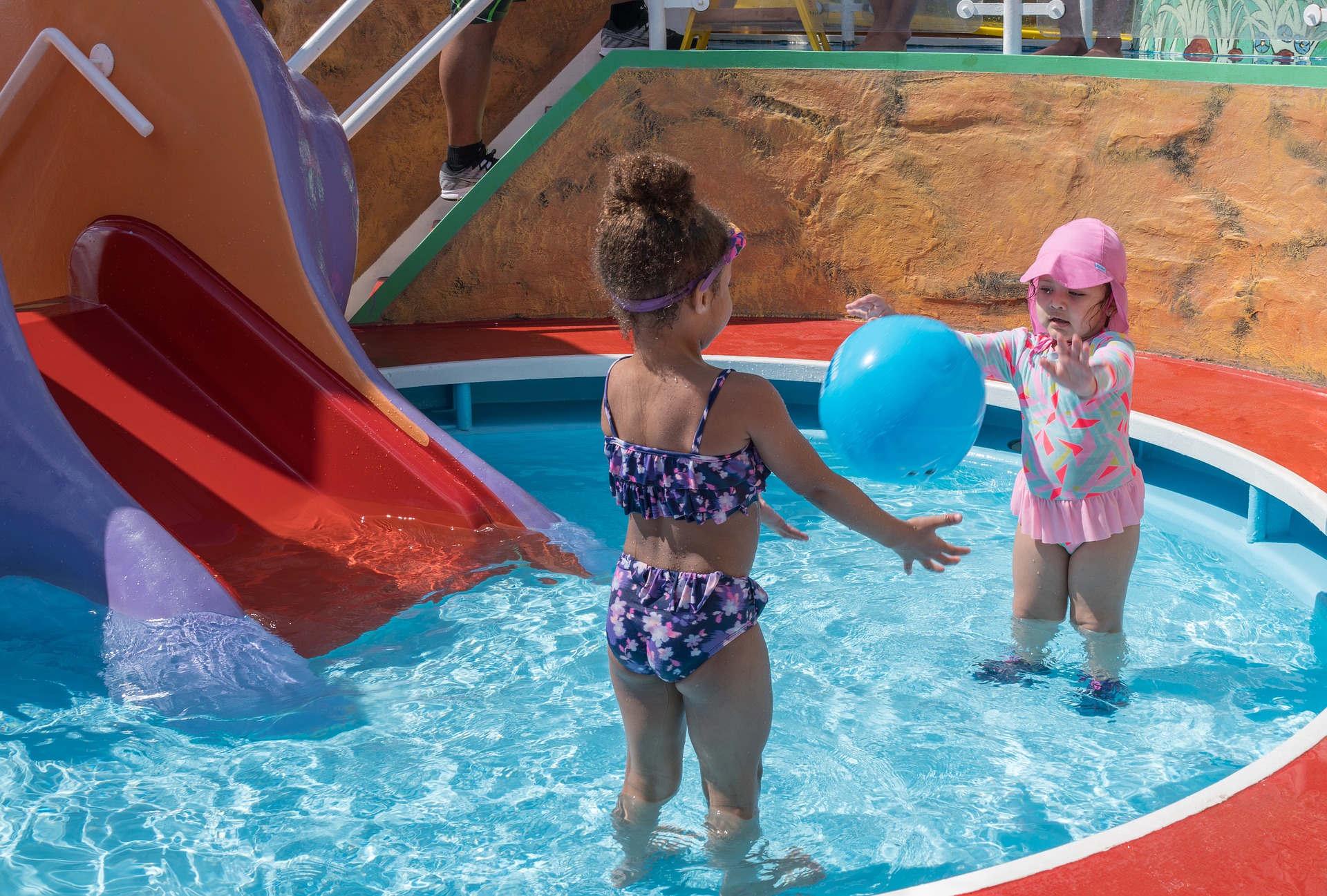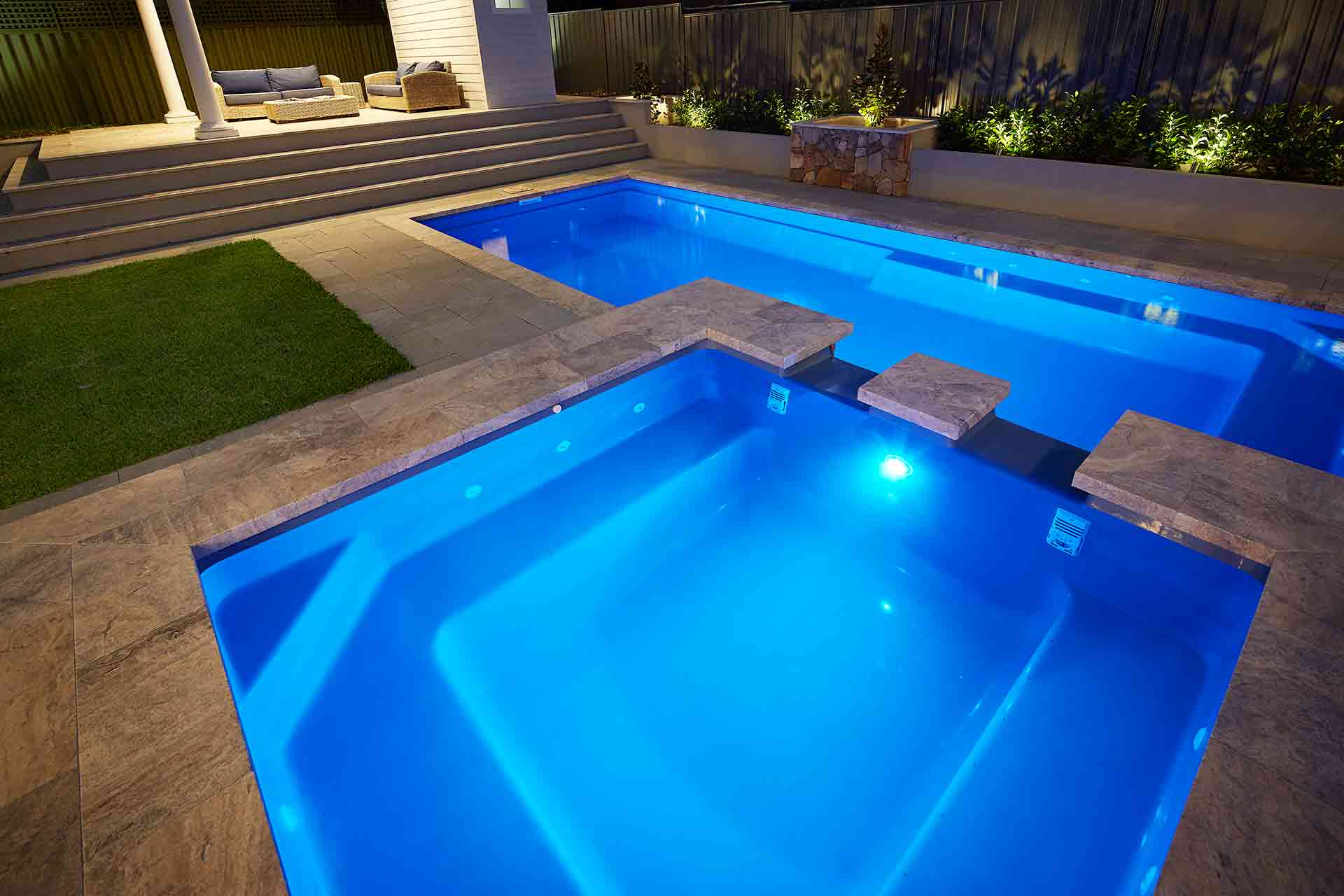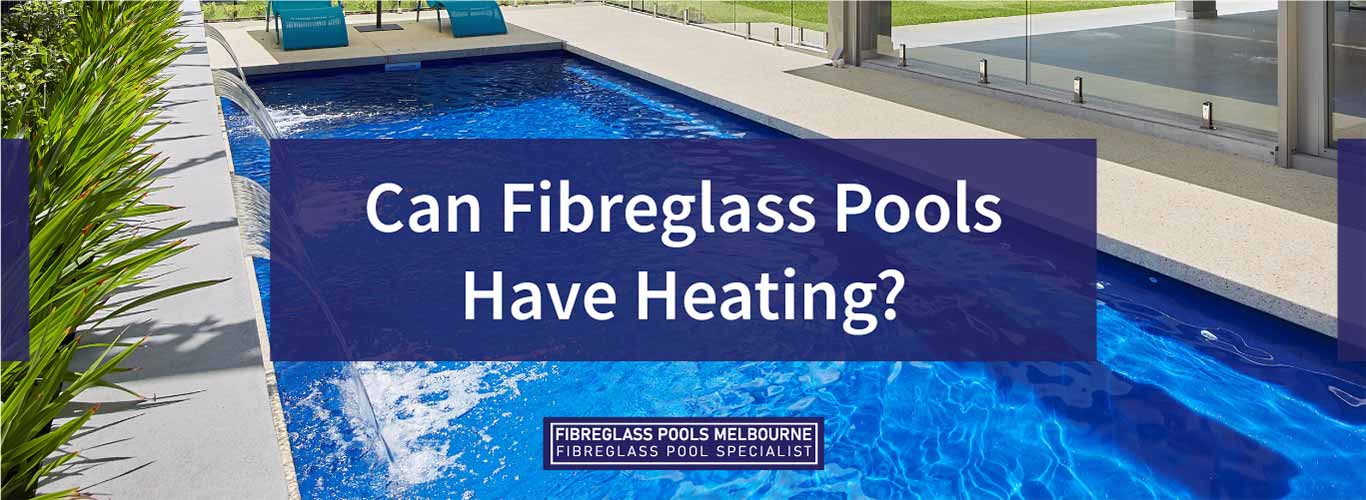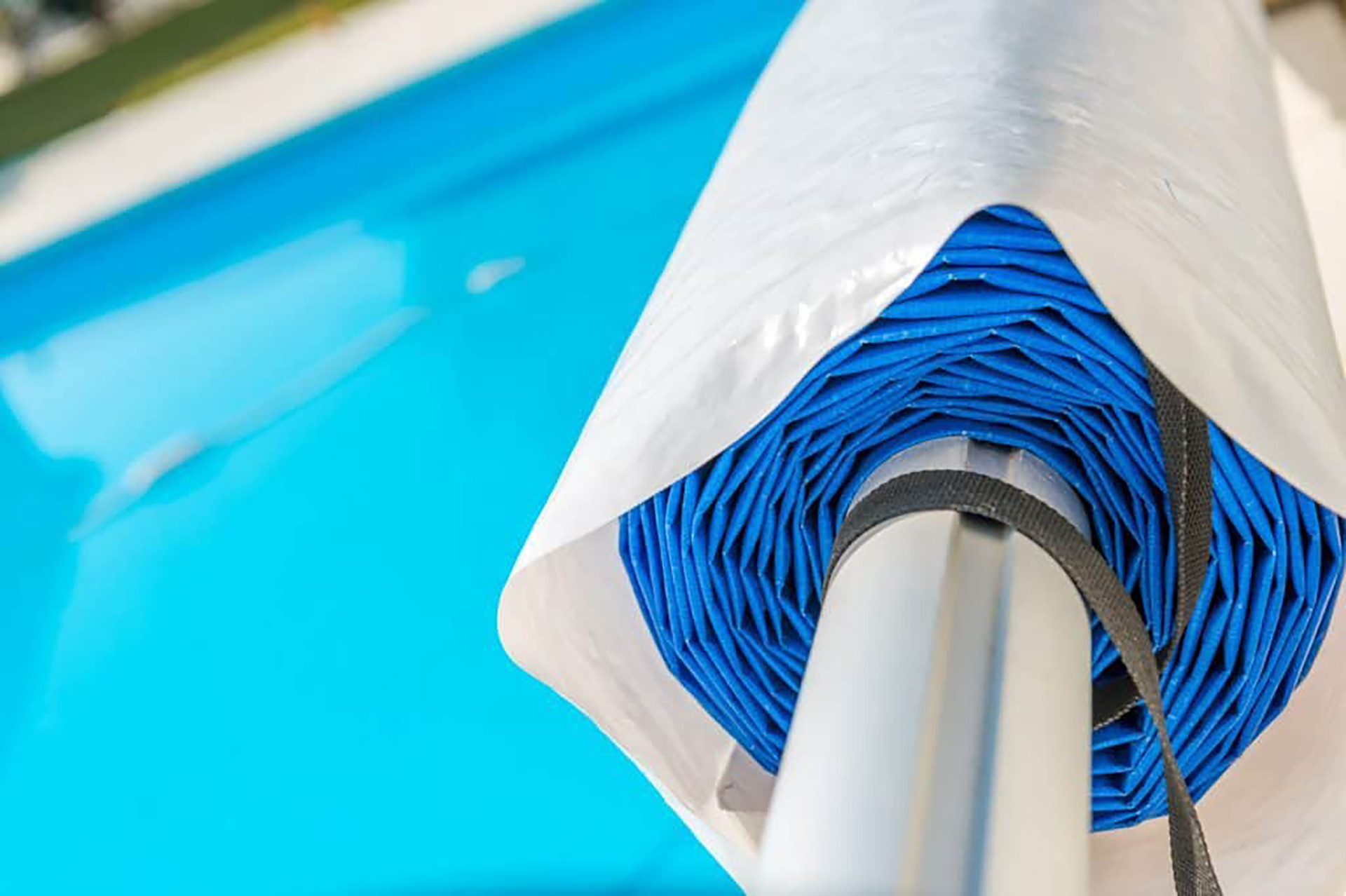Choosing A Colour For Your Fibreglass Pool
Installing a pool can sometimes feel like a large pile of decisions mixed together. It’s understandable then that in all the excitement and celebrations of purchasing a pool, you may have forgotten that you have to choose a colour for your pool! Or, perhaps you did remember, but you’re still sitting on the fence when it comes to two of our spectacular colours. Well, the good news is there are a ton of breath-taking colours to choose from. The bad news: we’re just kidding, there is no bad news! Read on to find out what colours your fibreglass pool can be and which ones will best suit your home.
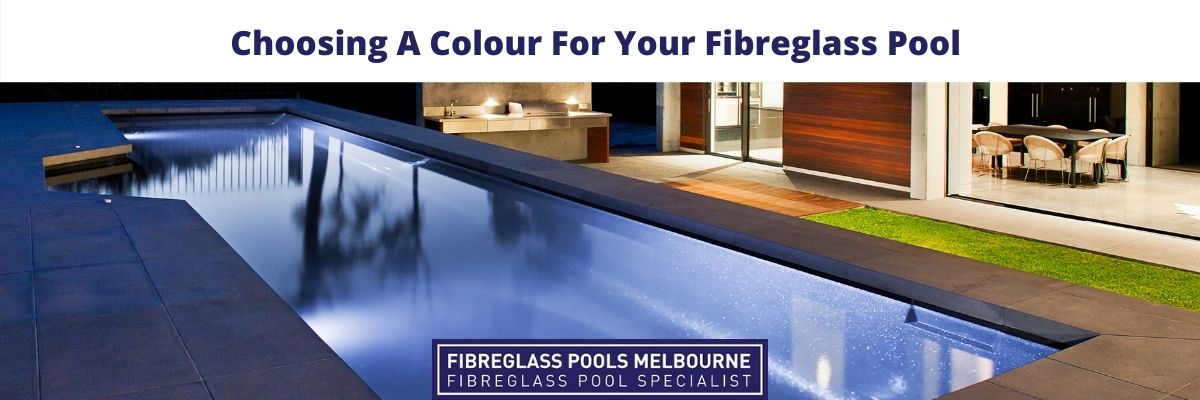
It’s All About The Look You Want For Your Home
The first thing you’ll want to find out is what kind of look are you going for in regards to your home? Certain colours will bring certain “looks” to your home, while others will be drastically different. These looks can be anything from vibrant and bright, to sleek and contemporary.
While there are certainly no wrong choices to be made, you will find that some colours are much more well-suited to your home than others. But, you’ve probably already figured that out by now and perhaps you’re looking to refine your choice.
Our darker colour range, including the Midnight Shimmer and Royal Blue Shimmer, bring a sharply formal and contemporary look to your pool. This would suit modern, urban homes that are looking to bring a little more jazz to their pool.
On the other hand, Fibreglass Pools Melbourne’s brighter colours, such as our Sandstone Shimmer and Alpine White Shimmer, offer a much lighter and friendly appearance. These colours are especially good if you have sandstone or bright coloured tiles and/or concrete surrounding the pool. They are also particularly favoured by large families, as the water is easier to see through and thus children (and the toys they will inevitably be leaving in the pool) will be easier to see and keep an eye on.
Compliment Your Aesthetic
Now that you know what kind of look you want for your pool, it’s just as important to match that look to your home’s aesthetic. Again, there is technically no wrong choice here; it’s your pool, your home and your imagination that are the limits. But if you want a more refined finish, consider avoiding colour clashes.
For example, if your home is recently built, modern and inside a suburban area and you’re installing a plunge pool, it would make sense to choose a Midnight Shimmer for the elegant, sleek look. Likewise, if your planned pool is to be situated surrounded by plants, in the sun all day and you’ve chosen dark tiles to surround it, the lightness of a pool sandstone colour would pair well with the dark tiles, and enhance the natural beauty of your plants.

Enjoy The Benefits Of Cutting Edge Technology
Just a quick note, but something to keep in mind: all pools from Fibreglass Pools Melbourne come fitted with our cutting edge gelcoat and resin technology. This advanced tech ensures superior interior surface performance for your fibreglass pool. The advantages of this are as follows:
- UV weathering protection for your pool
- Resistance to osmotic blistering
- Advanced water resistance for your pool’s surface
- Long-lasting and durable surface with gloss retention
- Superior chemical resistance including acid and chlorine
- A lifetime interior surface guarantee
And the best part is: this superior gelcoat and resin technology comes included no matter what pool colour you choose!
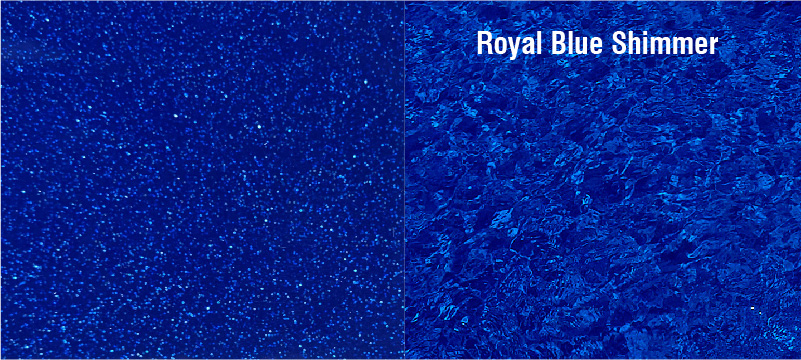
Royal Blue Shimmer
Royal Blue Shimmer is the deepest of blues available for your pool. Royal Blue Shimmer is particularly suited for fibreglass pools, as it brings out the stunning surface of your pool with specks of lighter coloured blue that are dotted throughout. This is a fibreglass pool classic and instantly recognisable.
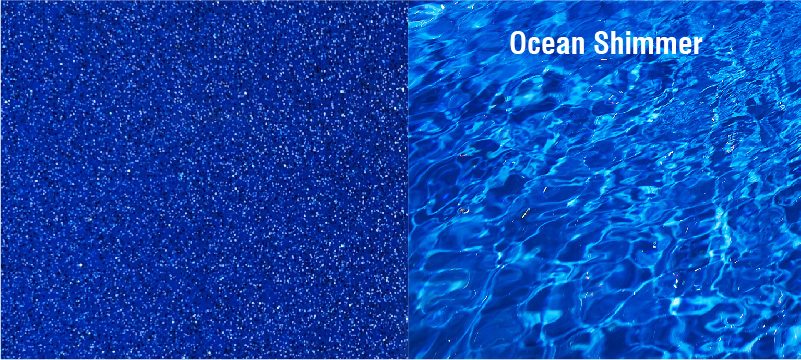
Ocean Shimmer
Ocean Shimmer is the happy halfway point between Royal Blue and Pacific Shimmer. It is known as the classic navy colour and it’s lighter-coloured speckles are brighter and more prominent than Royal Blue.

Pacific Shimmer
Pacific Shimmer. The fan-favourite. The showstopper. The go-to for fibreglass pools. Have you ever wondered what it’s like to swim in the Pacific Ocean and feel the crystal blue waves lap around you, as sea turtles and clown fish pass you by? Well, pacific shimmer can give you a taste of that ocean (minus the fish and turtles.) Pacific shimmer is a vibrant, brightly coloured blue with specks of white on its surface.
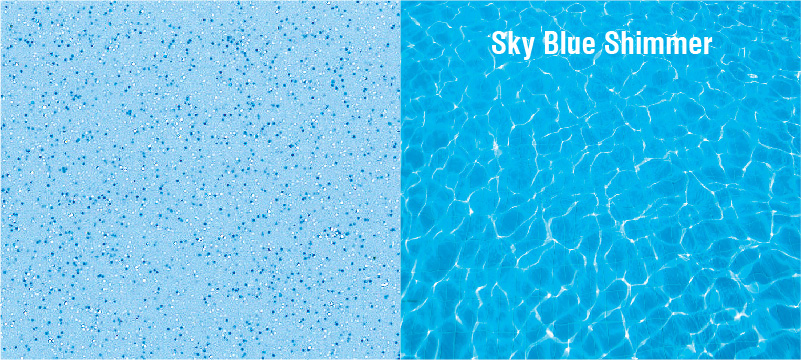
Sky Blue Shimmer
Sky Blue Shimmer is our brightest option. Bordering on teal, this colour pops right out of your pool and is perfect for those sunny weekends. It pairs naturally with vibrant plants and grey tiles. A day won’t pass you by where Sky Blue Shimmer doesn’t try to entice you into dive bombing the pool.

Sandstone Shimmer
Sandstone Shimmer is our resident wildcard. It’s colour is a very pale, diluted teal that is reminiscent of a sandy lagoon. It pairs particularly well with any design that is trying to recreate a beach-look.

Alpine White Shimmer
Alpine White Shimmer is, you guessed it, our whitest colour. Although it is technically white, it will more often than not appear as a very faded teal due to sunlight and our gelcoat technology. Interesting to note, the speckles on the pool surface will be blue.
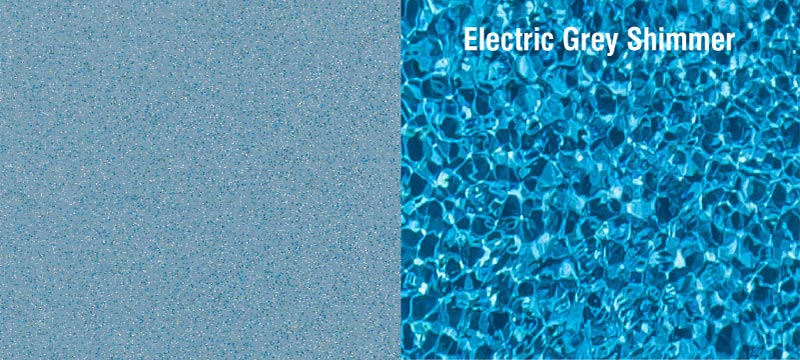
Electric Grey Shimmer
Electric Grey Shimmer is our safe choice: we firmly believe you can never go wrong with it. The colour of your pool will be a faded blue that is neither too dark nor too bright. Pairs well with most aesthetics.
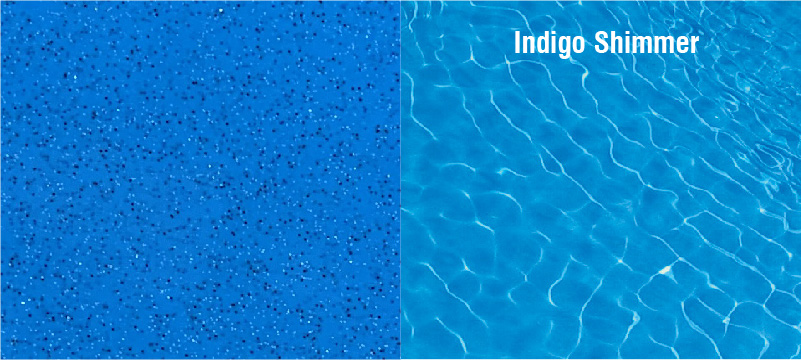
Indigo Shimmer
A midway point between Pacific Shimmer and Sky Blue Shimmer, Indigo Shimmer is a vibrant blue that will remind you of summer skies. Bright, but not blindingly so, Indigo still possesses some of the deep blue of previous ranges whilst still making it shine.

Midnight Shimmer
This is what you’ve been waiting for (we promise we don’t play favourites.) Midnight Shimmer: the closest to black your fibreglass pool can get. Fun fact: your pool’s surface will actually be an extremely dark blue, although you would likely mistake it for black. Adds a sharply formal and contemporary look to your pool.
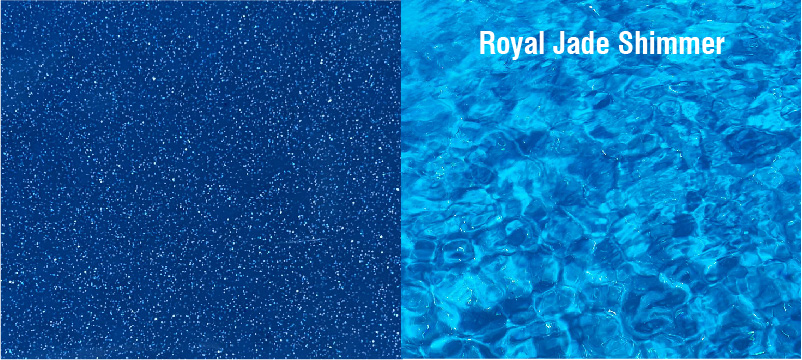
Royal Jade Shimmer
Similar to Indigo Shimmer although noticeably lighter, Royal Jade Shimmer is another summer favourite.
Contact Us Now
And there you have our complete list of colours! Where at Fibreglass Pools Melbourne hope this curated list of our cutting edge colours has helped make your choice a little easier. Remember, there is no wrong colour for your home and pool. But if you would like some assistance and recommendations from professionals with over 30 years of pool experience, then get in touch with Fibreglass Pools Melbourne today!

